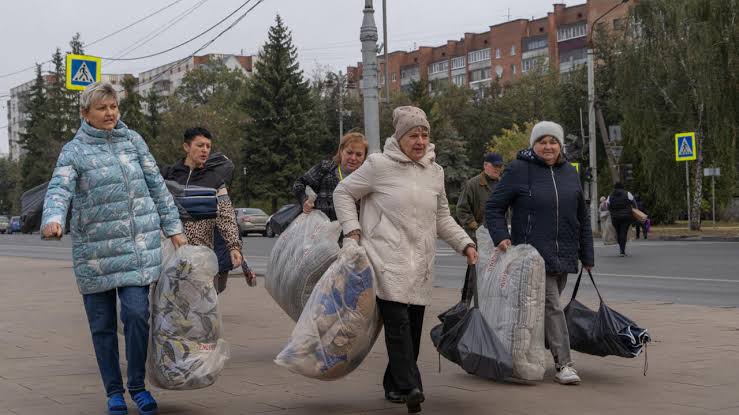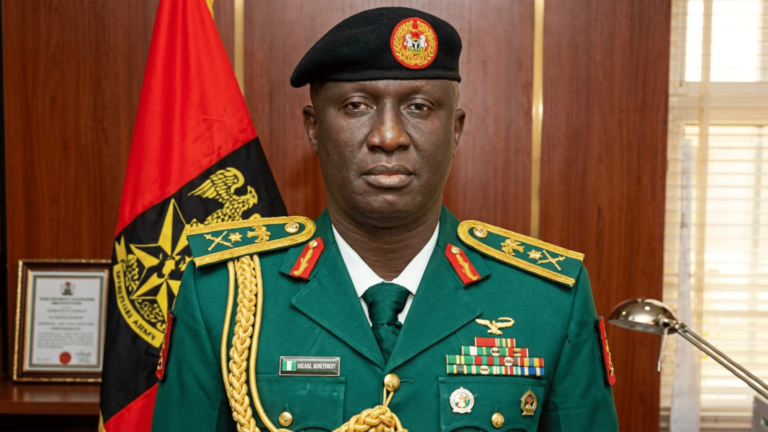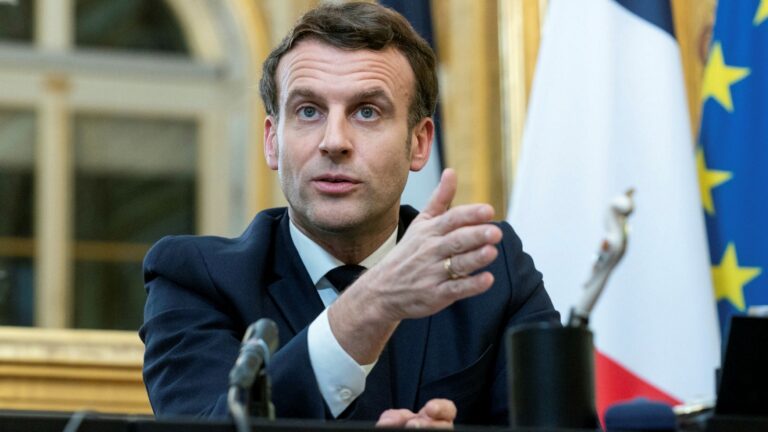
Ukraine announced on Thursday its willingness to establish a humanitarian corridor to facilitate the return of hundreds of Russian civilians residing in border areas currently under Ukrainian control, contingent upon a formal request from Moscow.
Over 1,500 civilians remain in the western Kursk region of Russia, which was captured by Ukrainian forces during a surprising cross-border operation initiated in August.
There has been a notable increase in frustration among these individuals regarding the Russian authorities, particularly among those who have lost contact with family members believed to be stranded without communication on the opposite side of the front line.
“We are prepared to create a humanitarian corridor from the Kursk region into the heart of Russia, should we receive an official request from the Russian Federation,” stated the office of President Volodymyr Zelensky in a communication to AFP.
“Clearly, the Russians do not desire such a humanitarian corridor, as we have yet to receive any corresponding request from them,” the presidency remarked, accusing Moscow of showing “indifference” towards the welfare of its own citizens.
This offer to assist in their return comes amid reports from Russia claiming that Ukrainian forces have launched a new offensive in Kursk, with Zelensky commending his troops for maintaining control over significant portions of Russian territory for the past six months.
While Russia has been regaining some territory, Ukraine continues to hold numerous border settlements near the regional center of Sudzha.
New Offensive
Earlier on Thursday, the Kremlin stated that it was doing “everything” possible but declined to publicly discuss the notion of a humanitarian corridor.
“This matter relies on the communications being conducted by our military forces, which, of course, cannot be made public,” Kremlin spokesman Dmitry Peskov informed reporters.
“The authorities are making every effort to assist our citizens who find themselves in such a challenging situation due to the aggressive actions of the Kyiv regime,” he continued.
Peskov’s remarks came in response to inquiries from Russian citizens regarding the establishment of a corridor to facilitate the return of their relatives from areas now under Ukrainian control.
Kyiv’s incursion into Russia’s Kursk region in August significantly altered the nearly three-year conflict, marking the first instance of a foreign military seizing Russian territory since World War II.
During a meeting with the governor of the region on Wednesday, Russian President Vladimir Putin acknowledged the situation as “very difficult,” yet he did not address the rising frustration concerning the status of missing individuals.
Ukrainian President Zelensky has characterized the operation as a crucial leverage point in future peace negotiations, noting that the capture of Russian soldiers has aided Kyiv in securing the release of its own prisoners of war.
On Thursday, Russia’s defense ministry reported that its forces had “thwarted” a new “counter-offensive” initiated by Ukraine approximately 10 kilometers (six miles) from the border, southeast of the Ukrainian-held town of Sudzha.
Russia claimed that Ukraine had mobilized two mechanized battalions, along with tanks and armored vehicles, in this attempted assault.
Officials in Kyiv have not commented on the recent offensive, and AFP has been unable to verify Russia’s claims or the scale of any ongoing conflict.
Zelensky commended his forces on Thursday for their efforts in the Kursk offensive and awarded several military units with state honors.
“The occupier can and should be defeated on its own soil,” he stated in a social media update.
“The Kursk operation exemplifies the principle of ‘peace through strength’,” he noted, highlighting a message he has been advocating to ensure continued military assistance from Ukraine’s Western allies.
Earlier on Thursday, Ukraine’s military reported capturing 909 Russian soldiers during the operation, adding to what Kyiv refers to as the “exchange fund” of prisoners of war available for swapping with captured Ukrainians.
Thursday also marked the six-month anniversary of the offensive’s initiation.
Ukraine has managed to facilitate the return of a few Russians, including children, from villages and towns it has taken control of, although there is no established process for their large-scale return.
Oleksiy Dmytrashkivsky, a spokesperson for Ukraine’s military operations in Kursk, informed AFP on Thursday that just over 1,500 Russians remain in areas under Kyiv’s jurisdiction.
According to officials in Kyiv, around six million Ukrainians, including 1.5 million children, reside in regions of the country currently under Russian control, as reported last year.
Additionally, millions more have been displaced from their homes in the east and south since Russia’s invasion began in February 2022.



